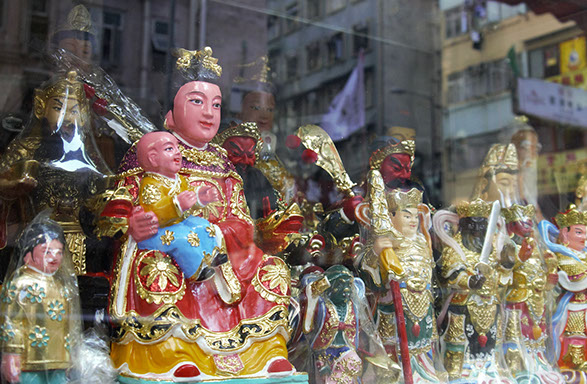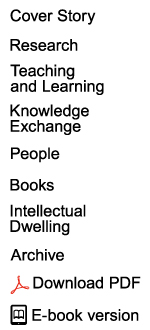Religious freedom is usually framed in terms of people’s freedom to choose the religion they want to follow, and the freedom of different religions to function in society. This freedom is premised on the perceived sacred and divine nature of religion that is beyond easy human comprehension. But religions have earthly dimensions, like the need for material resources. When some religions have more resources than others and are allowed to run schools and social services without restriction, they gain a significant advantage over other religions in recruiting new adherents and further increasing their resource base – an advantage that can override the idea of religious freedom.
This dilemma is based on the concept of religion as a consumer choice and Dr Chen Jianlin argues that it could be resolved by using the law to regulate religion in much the same way as it regulates commercial activities.
“When the law looks at religion, it tends to say that the state should not intervene as far as possible. In contrast, the law never pretends to be neutral about commercial activities – we all know too much intervention is bad but everybody can accept that one should regulate such things as health and safety, child labour, the environment, and of course, anti-trust. The intention is to prevent certain commercial entities from getting ahead by what are deemed to be unfair or harmful means,” he said.
Allowing religious organisations to provide schools with minimal restrictions on religious content is one such means in which religion can get ahead by virtue of non-religious reasons, he said, pointing to a comparison between schools in Hong Kong and Taiwan that sheds light on the difference in religious demographics between the two jurisdictions.
%20(full)re-crop-u18616.jpg?crc=237484496)
![]() Do we think a good religion is one that is effective at amassing funds or mobilising politically, or is it something else? The law can limit the inclusion of religious content in publicly-funded schools run by religious organisations, or it can allow great leeway.
Do we think a good religion is one that is effective at amassing funds or mobilising politically, or is it something else? The law can limit the inclusion of religious content in publicly-funded schools run by religious organisations, or it can allow great leeway. ![]()
Dr Chen Jianlin
Wealthier religions get an advantage
More than half of primary and secondary schools in Hong Kong are run by or affiliated with Christian organisations, and 12 per cent of the population identify as Christian. In Taiwan, practically no schools are run by religious organisations because until recently, they were not allowed to include religious content in education, and only 4.5 per cent identify as Christian. Moreover, only about one-quarter of Hong Kong people identify with Chinese folk religions against nearly 60 per cent in Taiwan.
“Although causation impact is not within the scope of my current research, these results suggest that the difference in school policy is at least a partial reason for this current difference in religious demographics between Hong Kong and Taiwan. If you allow a religion to spread its faith in the provision of social service, then wealthy religions – the ones with resources – will spread more. And in Hong Kong, Christian organisations – for a variety of external and historical reasons, including British colonial rule – have more financial resources,” Dr Chen said.
“All of this makes money important to the success of a religion. So when religions compete for followers, they’re not only competing on their teachings but also on how rich they are. Thus, in Hong Kong you have double the proportion of Christians and half the proportion of adherents to Chinese religions as compared to Taiwan. This may or may not be a good thing, but it needs to be confronted and discussed.”
Deciding the rules of competition
Given these issues, Dr Chen believes there is room for the law to redress the imbalances among religions. But first, society needs to start considering what kind of religion it wants. “The law sets the rules of competition so you must have a sense of who you want to win,” he said.
“Do we think a good religion is one that is effective at amassing funds or mobilising politically, or is it something else? The law can limit the inclusion of religious content in publicly-funded schools run by religious organisations, or it can allow great leeway. The law can also for example prohibit participation in political activities by religions, or it can allow it,” he said. “Once we have that conversation, we can start thinking about how we are going to change the rules of religious competition to help us achieve that notion.”
Dr Chen’s arguments form the basis of a forthcoming monograph The Law and Religious Market Theory: China, Taiwan and Hong Kong to be published by Cambridge University Press. He wrote the book during his past six years with the Faculty of Law, where he was based until this summer when he joined the University of Melbourne.

When Restraint Can Mean Freedom
Legal restrictions on religious activities could actually increase religious freedom by providing a more level playing field in the competition for adherents and resources, argues legal scholar Dr Chen Jianlin.
A store selling religious figurines in Yau Ma Tei, Hong Kong.
Back



